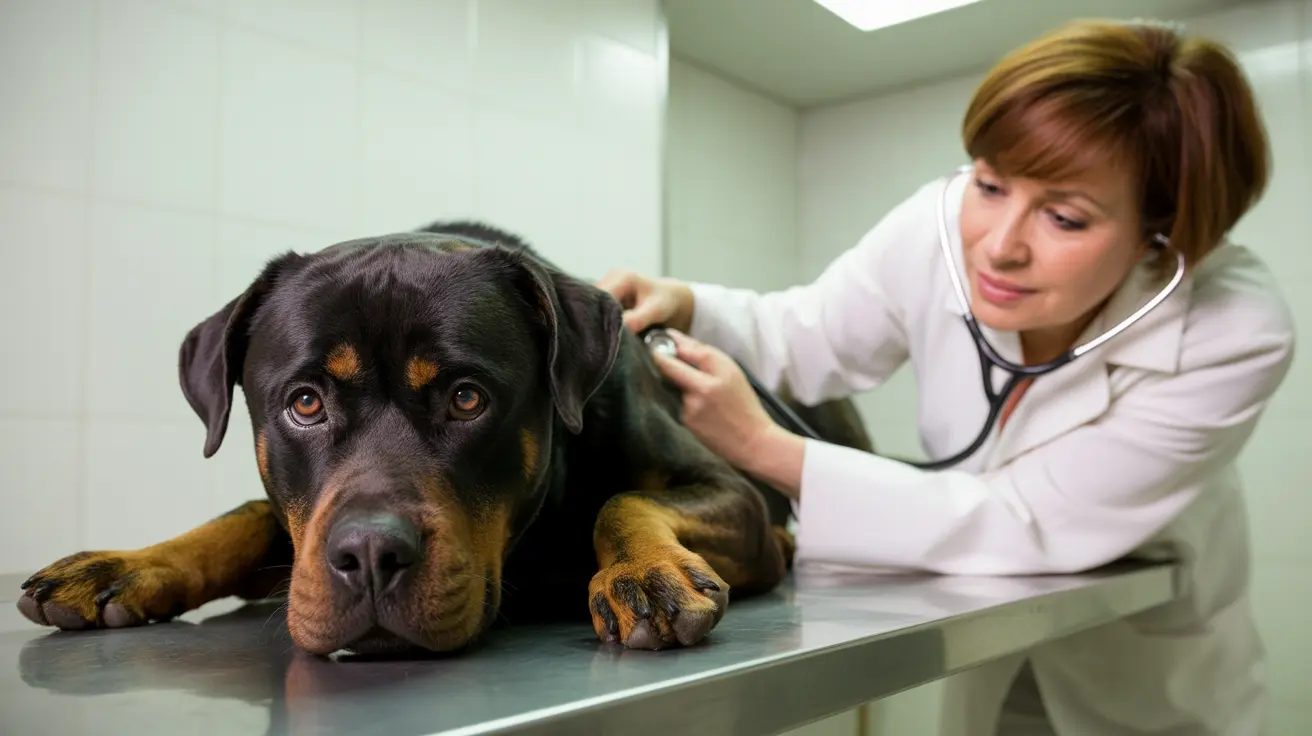When your furry friend experiences vomiting and diarrhea, it can be both distressing for them and concerning for you as a pet parent. These common digestive issues in dogs can range from mild dietary indiscretions to serious medical conditions requiring immediate veterinary attention. Understanding the causes, recognizing warning signs, and knowing how to respond can make a significant difference in your dog's recovery.
As responsible pet owners, it's crucial to be informed about these gastrointestinal issues, as they're among the most frequent reasons for veterinary visits. Let's explore everything you need to know about managing and preventing these uncomfortable symptoms in your canine companion.
Common Causes of Dog Vomiting and Diarrhea
Dietary Causes
Many cases of gastrointestinal upset in dogs stem from what they eat. Dogs who get into garbage, consume spoiled food, or experience sudden dietary changes often develop vomiting and diarrhea. Even seemingly harmless table scraps can trigger these symptoms, especially in dogs with sensitive stomachs.
Infections and Parasites
Bacterial, viral, and parasitic infections frequently cause digestive issues in dogs. Parvovirus, a particularly dangerous viral infection, can cause severe vomiting and diarrhea, especially in unvaccinated puppies. Common parasites like giardia and roundworms can also trigger these symptoms.
Recognizing Emergency Situations
While some cases of vomiting and diarrhea resolve on their own, others require immediate medical attention. Watch for these warning signs:
- Blood in vomit or stool
- Severe lethargy or weakness
- Persistent vomiting (more than 24 hours)
- Signs of dehydration (dry gums, sunken eyes)
- Accompanying fever or abdominal pain
Treatment Approaches
Immediate Care
The first step in treating dog vomiting and diarrhea often involves a brief food fast (12-24 hours) to rest the digestive system, followed by small amounts of water and a bland diet. However, never withhold food from puppies or senior dogs without veterinary guidance.
Medical Intervention
Veterinary treatment may include:
- Fluid therapy to prevent dehydration
- Anti-nausea medications
- Antibiotics if bacterial infection is present
- Probiotics to restore gut health
- Specialized prescription diets
Prevention Strategies
Taking proactive steps can help reduce the risk of digestive issues:
- Maintain a consistent, high-quality diet
- Prevent access to garbage and toxic substances
- Keep vaccinations current
- Regular deworming as recommended by your vet
- Gradual transition when changing foods
Frequently Asked Questions
Why do dogs vomit and have diarrhea, and what are the common causes?
Dogs typically experience vomiting and diarrhea due to dietary indiscretion, infections, parasites, or stress. Common causes include eating spoiled food, sudden diet changes, viral infections like parvovirus, or bacterial infections.
How can I safely treat my dog's vomiting and diarrhea at home?
For mild cases, withhold food for 12-24 hours (with vet approval), provide small amounts of water, and gradually introduce a bland diet of boiled chicken and rice. However, always consult your veterinarian before starting any treatment.
What are the signs that my dog needs emergency veterinary care for vomiting and diarrhea?
Seek immediate veterinary care if you notice blood in vomit or stool, severe lethargy, persistent vomiting, signs of dehydration, or if your dog appears to be in pain.
Can I prevent vomiting and diarrhea in dogs by making dietary changes or using supplements?
Yes, maintaining a consistent diet, avoiding table scraps, and using vet-recommended probiotics can help prevent digestive issues. Always introduce any dietary changes gradually.
How long does it typically take for a dog to recover from vomiting and diarrhea, and what factors affect recovery time?
Recovery typically takes 24-48 hours for mild cases, but can extend to several days depending on the underlying cause, severity of symptoms, and the dog's overall health status.
Remember, while mild cases of vomiting and diarrhea often resolve with home care, persistent or severe symptoms always warrant veterinary attention. Your quick response and appropriate care can help ensure your dog's swift recovery and prevent more serious complications.






